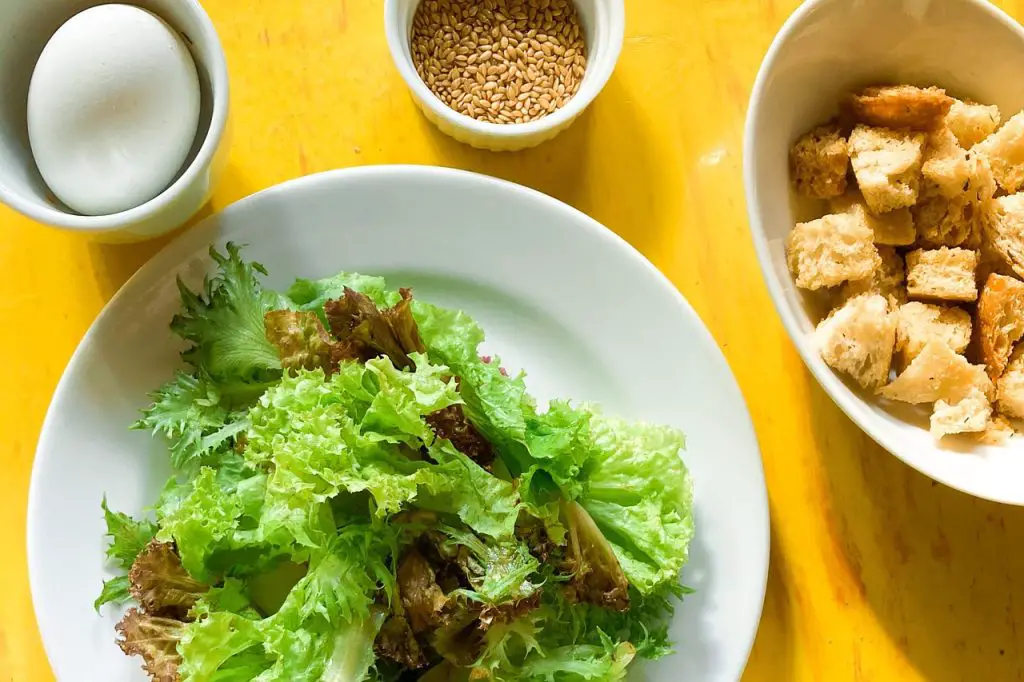Adopting a plant-based diet can be a transformative way to improve your health, reduce environmental impact, and discover a new appreciation for the variety of flavors and nutrients that plants offer. Embarking on a 7-day plant-based diet is a great way to introduce yourself to this lifestyle. This guide will provide you with essential tips, a simple meal plan, and the benefits you can expect from a week of plant-based eating.
Benefits of a Plant-Based Diet
Improved Health: A plant-based diet is rich in vitamins, minerals, and fiber, which can help improve digestion, lower blood pressure, and reduce the risk of chronic diseases such as heart disease and type 2 diabetes.
Weight Management: Plant-based foods are often lower in calories and fat than animal products, helping with weight loss or maintenance.
Environmental Sustainability: Plant-based eating requires less water, land, and energy to produce food, significantly reducing your carbon footprint.
Animal Welfare: Choosing plant-based options contributes to reduced demand for animal products, aligning with ethical choices regarding animal welfare.
Getting Started: Tips for Success
Plan Your Meals: Planning is key to ensuring you have a variety of nutrients and flavors throughout the week.
Keep It Simple: Start with simple recipes that don’t require exotic ingredients or complex cooking techniques.
Experiment with Alternatives: Try plant-based milks, cheeses, and meat substitutes to discover new favorites.
Stay Hydrated: Drink plenty of water, herbal teas, or infused water to stay hydrated.
Listen to Your Body: Pay attention to how different foods make you feel and adjust your diet accordingly.
7-Day Plant-Based Meal Plan
Day 1:
Breakfast: Oatmeal with almond milk, topped with fresh berries and chia seeds.
Lunch: Quinoa salad with black beans, avocado, cherry tomatoes, and lime dressing.
Dinner: Stir-fried tofu with broccoli, bell peppers, and a teriyaki sauce, served over brown rice.
Day 2:
Breakfast: Smoothie bowl with spinach, banana, peanut butter, and plant-based milk, topped with granola.
Lunch: Whole wheat wrap with hummus, grated carrot, cucumber, and mixed greens.
Dinner: Lentil soup with whole-grain bread and a side salad.
Day 3:
Breakfast: Avocado toast on whole-grain bread with a side of mixed fruit.
Lunch: Chickpea salad with olives, red onion, cucumber, and a tahini dressing.
Dinner: Vegetable curry with coconut milk, served with quinoa.
Day 4:
Breakfast: Chia pudding made with plant-based milk, topped with sliced almonds and mango.
Lunch: Baked sweet potato filled with black beans, corn, and salsa, topped with avocado.
Dinner: Pasta with marinara sauce, spinach, and nutritional yeast.
Day 5:
Breakfast: Breakfast burrito with scrambled tofu, black beans, avocado, and salsa.
Lunch: Spinach and strawberry salad with walnuts and a balsamic vinaigrette.
Dinner: Stuffed bell peppers with brown rice, lentils, and spices, served with a side of steamed greens.
Day 6:
Breakfast: Peanut butter and banana sandwich on whole-grain bread.
Lunch: Soba noodle salad with edamame, carrots, and a ginger soy dressing.
Dinner: Vegan pizza with a cauliflower crust, topped with tomato sauce, mushrooms, and vegan cheese.
Day 7:
Breakfast: Berry and banana smoothie with spinach and plant-based protein powder.
Lunch: Vegan sushi rolls with avocado, cucumber, carrot, and tofu.
Dinner: Eggplant parmesan made with almond flour and vegan cheese, served with a side of spaghetti squash.
A 7-day plant-based diet is not just a gateway to improved health and ethical eating; it’s an opportunity to explore the rich variety of plant-based foods. By planning your meals and being open to trying new foods, you can enjoy a fulfilling, nutritious, and delicious week of plant-based eating. Remember, this week can be the beginning of a lifelong journey towards a healthier, more sustainable, and compassionate lifestyle.
As you wrap up your 7-day plant-based diet challenge, you might find yourself intrigued by the diversity of flavors and ingredients you’ve encountered. This experience could be the stepping stone to a longer-term commitment to plant-based eating. Here are additional tips and considerations to help you continue your journey beyond the initial week.
Expand Your Recipe Collection
Explore International Cuisines: Many cultures around the world have a rich history of plant-based cooking. Indian, Mediterranean, and East Asian cuisines offer a plethora of vegetarian and vegan dishes that are both flavorful and nourishing.
Cook in Batches: Prepare staples like beans, rice, and chopped vegetables in bulk. This will save you time and ensure you always have the basics ready for a quick meal.
Be Creative with Leftovers: Turn last night’s dinner into today’s lunch. Many dishes, such as soups and stews, often taste better the next day after the flavors have melded.
Nutrition and Health
Diversify Your Diet: To ensure you’re getting a broad spectrum of nutrients, eat a variety of fruits, vegetables, grains, nuts, and seeds. Each type of food offers different essential nutrients.
Consider Supplements: While a well-planned plant-based diet can meet most of your nutritional needs, you may need supplements for nutrients like Vitamin B12, Vitamin D, Omega-3 fatty acids, and iron. Consult with a healthcare professional to tailor advice to your specific needs.
Monitor Your Health: Pay attention to how your body responds to the diet change. Improvements in energy levels, digestion, and overall well-being are common, but individual experiences may vary.
Lifestyle Changes
Mindful Eating: Take the time to enjoy your food. This can help you feel more satisfied with plant-based meals and appreciate the variety of flavors and textures.
Community Support: Join plant-based groups, online communities, or local meetups to share experiences, recipes, and tips. Support from others can be incredibly motivating.
Educate Yourself: Learning more about the benefits of plant-based eating for health, animals, and the environment can provide additional motivation to continue with this lifestyle.
Challenges and Solutions
Eating Out: Look for restaurants with plant-based options or those that are willing to accommodate. Ethnic restaurants often have naturally plant-based dishes.
Dealing with Cravings: Experiment with plant-based versions of your favorite dishes. There are vegan alternatives for almost everything, from cheese to chocolate.
Social Situations: Bring your own dish to share at gatherings, or offer to help with meal planning. This can be a great way to introduce others to plant-based eating without feeling left out.
Completing a 7-day plant-based diet is an achievement that can lead to profound changes in your health, lifestyle, and perspective on food. Whether you decide to fully embrace a plant-based diet or simply incorporate more plant-based meals into your routine, the benefits are manifold. Remember, every meal is an opportunity to make choices that align with your health goals, ethical values, and environmental concerns. With the right approach, plant-based eating can be a rewarding and delicious journey.
FAQ on Plant-Based Diet
Will I get enough protein on a plant-based diet?
Answer: Yes, a well-planned plant-based diet can provide all the protein you need. Sources of plant-based protein include legumes (beans, lentils, chickpeas), whole grains, nuts, seeds, and soy products like tofu and tempeh. It’s important to consume a variety of these foods to ensure you’re getting all the essential amino acids.
How can I make sure I’m getting enough vitamins and minerals?
Answer: Focus on variety. Eating a wide range of fruits, vegetables, grains, nuts, and seeds will help you get the vitamins and minerals you need. Key nutrients to pay attention to include Vitamin B12, Vitamin D, Omega-3 fatty acids, iron, calcium, and zinc. In some cases, supplements may be recommended, especially for Vitamin B12.
Is a plant-based diet expensive?
Answer: A plant-based diet can be very economical. Staples like beans, rice, pasta, and seasonal vegetables and fruits are often less expensive than meat and dairy products. Processed and specialty vegan items can be pricier, so focusing on whole, plant-based foods can help keep costs down.
How do I handle social situations, such as dining out or attending events?
Answer: Research restaurants in advance to find plant-based options. When attending events, offering to bring a dish ensures you’ll have something to eat and also introduces others to plant-based foods. Communicate your dietary preferences with hosts or event planners—they are often more accommodating than you might expect.
Will I feel full and satisfied on a plant-based diet?
Answer: Yes, plant-based foods can be very filling due to their high fiber content. Fiber helps you feel full longer. Including a variety of foods in your meals—such as whole grains, vegetables, fruits, legumes, nuts, and seeds—ensures that you get a mix of flavors and textures that contribute to feeling satisfied.
Can I still eat out at restaurants?
Answer: Absolutely. Many restaurants now offer plant-based options. Ethnic restaurants, such as Indian, Thai, and Middle Eastern, often have a wide variety of plant-based dishes. Don’t hesitate to ask the chef to modify dishes by removing animal products.
What if I miss the taste of meat?
Answer: There are many plant-based meat substitutes available that mimic the taste and texture of meat. Experiment with tofu, tempeh, and seitan in your cooking. Additionally, mushrooms, jackfruit, and lentils can provide meaty textures and flavors when prepared in certain ways.
How do I start transitioning to a plant-based diet?
Answer: Start gradually. Incorporate more plant-based meals into your diet and reduce animal products over time. Try “Meatless Mondays,” switch to plant-based milk, or commit to plant-based meals during the day. Find a pace that works for you and allows you to adjust comfortably.
What are some quick and easy plant-based meals for beginners?
Answer: Here are some simple, nutritious, and delicious plant-based meals that are perfect for beginners:
Veggie Stir-Fry: Sauté your favorite vegetables (like bell peppers, broccoli, and snap peas) with tofu or tempeh and a sauce of your choice (soy sauce, ginger, and garlic). Serve over brown rice or quinoa.
Chickpea Salad: Mix canned chickpeas with diced cucumber, tomatoes, red onion, and a simple dressing of olive oil, lemon juice, salt, and pepper. Add some fresh herbs like parsley or cilantro for extra flavor.
Vegetable Soup: Start with a base of sautéed onion, garlic, and celery. Add chopped vegetables (such as carrots, potatoes, and green beans), canned tomatoes, and vegetable broth. Season with herbs and simmer until the vegetables are tender.
Peanut Butter Banana Smoothie: Blend together a ripe banana, a tablespoon of peanut butter, plant-based milk, and a handful of spinach for a nutritious and filling smoothie.
Lentil Tacos: Cook lentils with taco seasoning. Serve in corn tortillas with toppings like lettuce, tomato, avocado, and salsa for a plant-based take on taco night.
Spaghetti with Marinara Sauce: Whole grain or legume-based pasta with a hearty marinara sauce made from canned tomatoes, garlic, onion, and Italian herbs. Add sautéed vegetables or lentils for extra nutrition.
Quinoa Salad: Combine cooked quinoa with black beans, corn, avocado, cherry tomatoes, and a lime-cilantro dressing for a refreshing and protein-packed meal.
Overnight Oats: Mix rolled oats with plant-based milk, chia seeds, and your sweetener of choice. Let it sit in the fridge overnight. In the morning, top with fresh fruit and nuts.
How can I stay motivated on a plant-based diet?
Answer: Keeping motivated can sometimes be challenging, but here are a few strategies to stay on track:
Set Clear Reasons: Whether it’s for health, environmental, or ethical reasons, having clear motivations can help keep you focused.
Educate Yourself: The more you learn about the benefits of plant-based eating and the impact of animal products on health and the environment, the more motivated you may feel.
Experiment with New Recipes: Keep your meals exciting by trying new recipes and ingredients regularly.
Connect with a Community: Find support from plant-based groups, forums, or local meetups. Sharing experiences and tips can be incredibly motivating.
Track Your Progress: Keep a journal of how you feel, improvements in health, and new foods or recipes you’ve tried. Seeing your progress can be a powerful motivator.
Transitioning to a plant-based diet can be a rewarding journey filled with new tastes, improved health, and the satisfaction of making positive choices for the planet and animals. By starting slow, staying informed, and being open to experimenting with new foods and recipes, you can enjoy a fulfilling and sustainable plant-based lifestyle. Remember, every step towards plant-based eating is a step towards a healthier you and a healthier planet.




